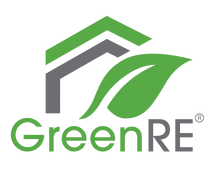Green building assessors
Airscan ondersteunt Green Building assessors bij het uitvoeren van testen op het gebied van lucht, water, licht en akoestiek. Airscan ondersteunt klanten ook met acties en aanbevelingen om de situatie indien nodig te verbeteren.

Well Building Standard
Airscan is een Well Performance Testing Organisatie in het bezit van Well Performance Testing Agent certificaten. We helpen gebouweigenaren bij het verkrijgen van Well-certificaten of Well-prestatiebeoordelingen door de volgende testactiviteiten uit te voeren:
- Luchtkwaliteit
- Waterkwaliteit
- Licht
- Thermisch comfort
- Geluid

BREEAM (luchtkwaliteit)
Airscan helpt BREEAM-assessors bij het verkrijgen van de Air Quality credits door het uitvoeren van de post-constructie (maar pre-bezetting) testen met betrekking tot luchtkwaliteit (Hea 02):
- Vluchtige organische stoffen (via ISO 16000-6 methode)
- Formaldehyde (via ISO 16000-3 methode)

LEED (luchtkwaliteit)
Airscan diensten omvatten het testen van de luchtkwaliteit in gebouwen na de bouw en vóór ingebruikname in overeenstemming met LEED New Construction V4.1. Deze test voegt 2 extra punten toe aan het certificeringsproces en verhoogt de eindscore van het project. De tests worden uitgevoerd volgens de ISO 16000 en ISO 17000 normen.

DGNB (luchtkwaliteit)
Airscan helpt gebouwen die een DGNB-certificering willen behalen om aan te tonen dat de VOC-niveaus binnenshuis voldoen aan de ISO-normen en aan de belangrijkste criteria van het onderdeel Socioculturele en functionele kwaliteit.

MyCrest (luchtkwaliteit)
In Maleisië worden de richtlijnen van MyCREST, of de Malaysian Carbon Reduction and Environmental Sustainability Tool, toegepast door de door Airscan geaccrediteerde MyCREST-assessor om te controleren of een gebouw een lage CO2-uitstoot en milieueffect heeft. Het gebouw wordt in elke fase van zijn levenscyclus geëvalueerd, waarbij rekening wordt gehouden met de sociaaleconomische belangen en de stedelijke ontwikkeling.

GreenRE
Green Real Estate (GreenRE), gelanceerd door de Maleisische Real Estate and Housing Developers’ Association (REHDA), is een door de overheid erkende certificering voor groen bouwen die aansluit bij mondiale normen. Het bevordert duurzame praktijken in zes categorieën – energie-efficiëntie, waterefficiëntie, milieubescherming, kwaliteit van het binnenmilieu, groene innovatie en koolstofemissiebeheer – ter ondersteuning van de duurzaamheidsdoelstellingen van Maleisië. Gecertificeerde gebouwen krijgen prikkels zoals belastingvoordelen en een hogere marktwaarde.





